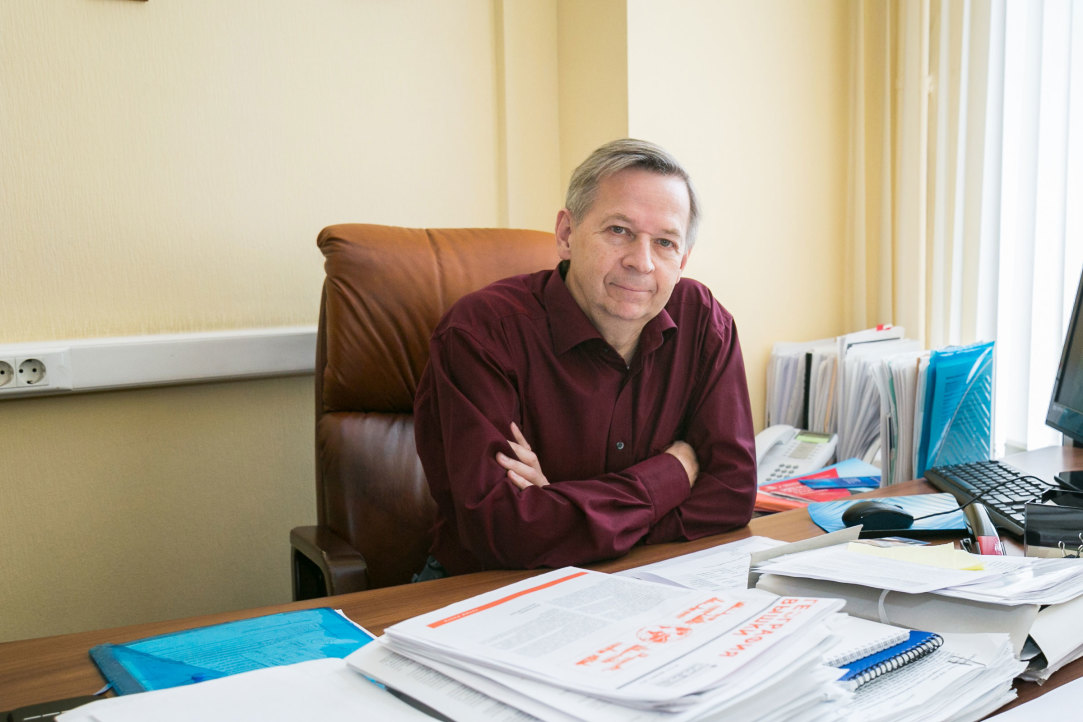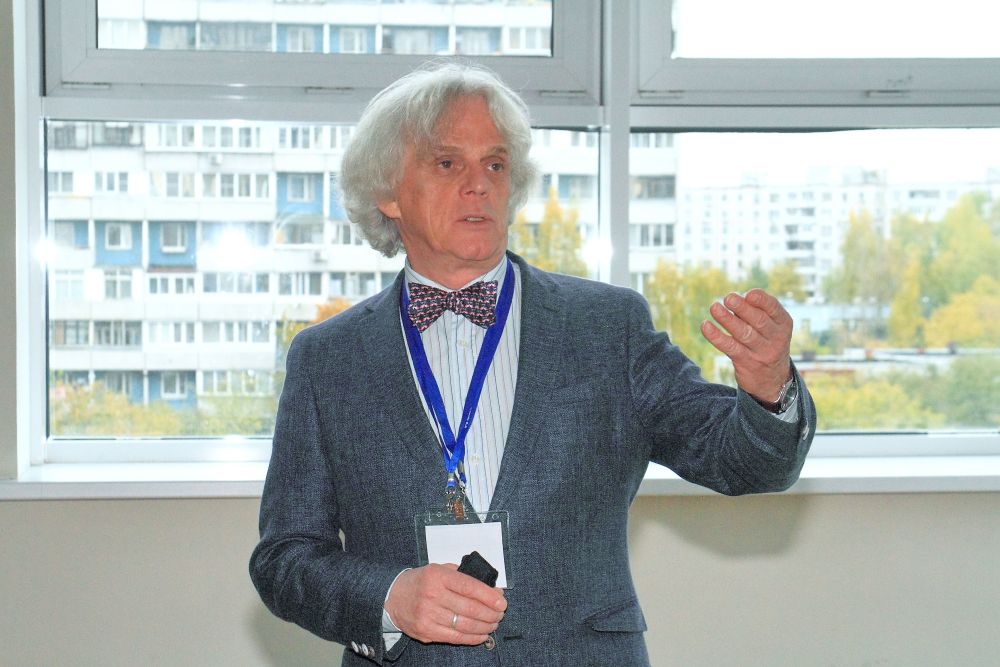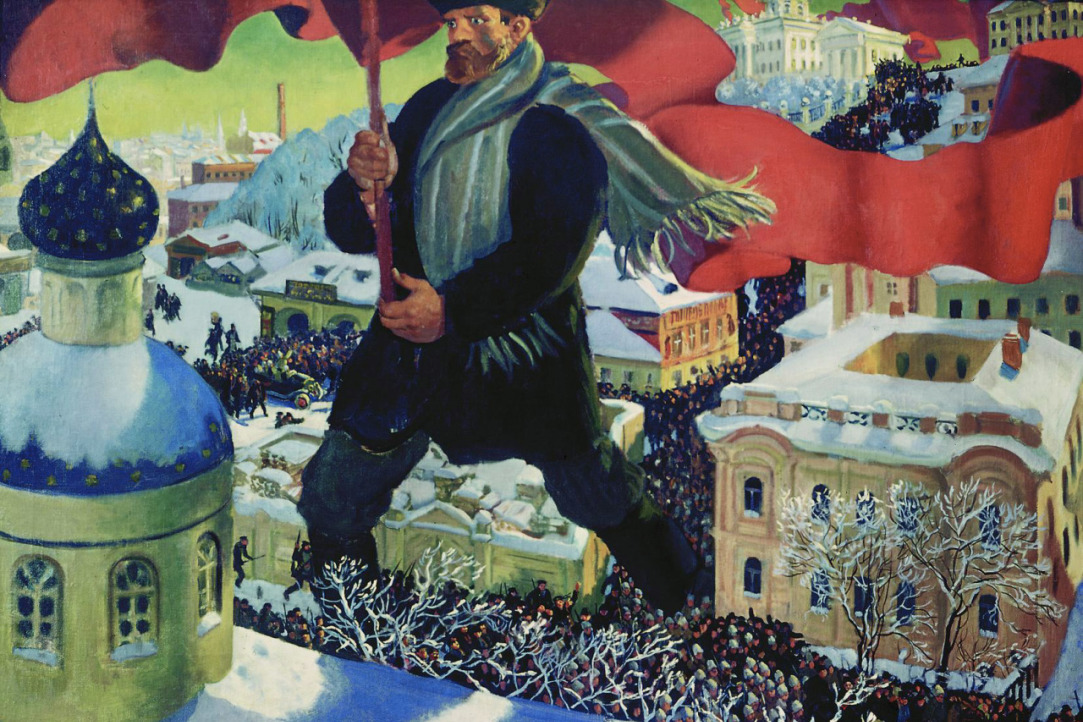
What Mitigates the Consequences of Recession for Companies?
HSE experts demonstrated that companies with foreign participation have an easier time overcoming the consequences of economic recessions. The results of the study were presented in the paper ‘Lean against the wind: The moderation effect of foreign investments during the economic recession in Russia’ published by the Journal of Economics and Business.
Translation Studies Expert Speaks at School of Philology
On September 26 and 27, the HSE School of Philology hosted Professor Brian Baer of Kent University (Ohio, USA) for a lecture entitled ‘The Translator’s Biography in Soviet and Post-Soviet Russia: Art, Politics, Identity’, followed by a workshop on ‘Teaching Translation Studies’. Following his lecture and workshop, Professor Baer spoke with the HSE News Service about his career as a translator, the role of the translator in society and his recommendations for international readers looking for exposure to Russian literature.

'HSE Was Able to Become a Success in a Short Period of Time'
Oleg Ananyin, Tenured Professor, Professor in the Department of Theoretical Economics (Faculty of Economic Sciences), Academic Supervisor of the ‘Politics. Economics. Philosophy’ master’s programme, Chairman of the Education and Teaching Methods Council, Member of the HSE Academic Council, spoke on his academic interests, as well as shared his thoughts on the development of HSE and Russian economic community.

HSE MIEM Professor Elected Fellow of American Physical Society
The American Physical Society (APS) has recognised HSE MIEM Professor Lev Shchur for his innovative use of computer simulations and the development of superior random number generators for their use in statistical physics. Professor Shchur is the only academic working in Russia to be selected as APS Fellow in 2017.
International Sociology Seminar Focuses on Social Movements
On October 19, the HSE School of Sociology hosted Dr. Kerstin Jacobsson, Professor of Sociology at the University of Gothenburg (Sweden), for a seminar entitled ‘Emotions and Morality in a neo-Durkheimian Perspective on Social Movements’. Held as part of the International Sociology Seminar Series, Dr. Jacobsson’s talk was based on the book Animal Rights Activism: A Moral-Sociological Perspective on Social Movements (co-authored with Jonas Lindblom), which develops a novel theoretical perspective on social movements. Following her lecture, she spoke with the HSE News Service about some of the key findings in her research on social movements, including as they relate to the post-Soviet space.
‘In Russian the Word “Justice” Is Not Associated with the Word “War”’
Researchers from the Higher School of Economics have begun working with the research centre of the French Saint-Cyr Military Academy (École spéciale militaire de Saint-Cyr) on the moral and political issues of modern-day warfare. One part of this partnership was a conference devoted to just war theory and problems with combating terrorism. Below, Faculty of Humanities Professor Boris Kashnikov, also a participant of the conference, tells Scholar Viewpoint whether there can be justice in war and how scholars of the humanities are able to work together with the military.
Recent Lecture Addresses Reflections on Empire, Russia and Historical Comparison
On October 11, Professor Dominic Lieven of the University of Cambridge, where he serves as Senior Research Fellow, Trinity College, gave a public lecture at HSE St Petersburg entitled ‘Reflections on empire, Russia and historical comparison’. The event was organized by the Center for Historical Research.

Overcoming the Revolution
A hundred years has passed since the October Revolution of 1917, but this event still hasn’t reached its logical conclusion. Its consequences are still crucial in defining the political system in Russia today and fostering divisions in society, believes Andrey Medushevsky, Professor at the HSE Faculty of Social Sciences, political scientist, historian and author of the book A Political History of the Russian Revolution: Norms, Institutions and Forms of Social Mobilization in the 20th Century.
Expert on Soviet Economic and Demographic History Speaks at HSE
On October 10, Stephen Wheatcroft, Professor of the School of Historical Studies at the University of Melbourne delivered a lecture on ‘The importance of the grain problem in the Russian Revolution and for the next 40 years of Soviet Economics' at HSE Moscow as part of a long and busy schedule. A participant at previous April Conferences at HSE, Professor Wheatcroft is one of the world’s foremost experts on Soviet social, economic and demographic history, as well as famine and food supply problems in modern world history.
Alzheimer, Parkinson Et Al
Globally, the burden of neurological disorders (Alzheimer’s disease, Parkinson’s disease, stroke, epilepsy etc) has increased substantially over the past 25 years. This problem is the topic of a recent report by the Global Burden of Disease (GBD) international project, which was published in The Lancet. One of its participants is Vasily Vlassov, Professor at the HSE Faculty of Social Sciences.

